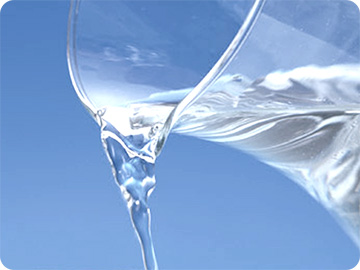
The secret to enjoying tea is to drink it with the right water and at the right temperature for the variety.
The right water to best enjoy Japanese tea is slightly acidic “soft water”. The water is Japan is usually this kind so there is no problem using water from the tap but as it also contains chlorine please be sure to always boil it first. Mineral water from overseas is usually “hard water” containing calcium and magnesium and it is not suitable for tea. Most domestic Japanese mineral water is soft, but please check the label on the bottle. The following types of water are also not suitable for tea:
※Hardness Mineral water contains mineral salts such as calcium and magnesium and the measure of how much of these water contains is known as “Hardness”. Water with a higher level of minerals are considered “hard” and anything with a lower level (lower quantity of minerals) is known as “soft water”.
When making Japanese tea it’s not a case of the hotter the water the better. The appropriate temperature depends on which characteristic of the tea you want to bring out, and also the composition of the tea.
Water temperature is important in bringing out the flavour of tea. The appropriate temperature depends on the flavour components of each tea variety as they infuse the water. For example, the bitter component Catechin dissolves at over 80 degrees, while the Umami amino acid component dissolves at a lower 50 degrees.In the case of Sencha,we want to supress bitterness and bring out the Umami flavour, so we should use water at 70-80 degrees, while high-quality green tea should brew at a lower 50 degrees to bring out the Umami. Conversely, fragrant teas like Genmaicha, Houjicha, Chinese teas (depending on the variety), and Koucha need hot water at 100 degrees to bring out the aroma and astringent taste. If the preference is for bitter Sencha or the healthy ingredients in Rokucha, then tea leaves with a high concentration of Catechin should be chosen and the tea brewed with very hot water.